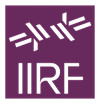A path toward religious freedom in the DPRK
Is it possible?
DOI:
https://doi.org/10.59484/IWKY1774Keywords:
DPRK, North Korea, Juche, leader cult, religious persecutionAbstract
North Korea is one of the most authoritarian states in the world, and members of religious groups face severe persecution. This article explores how deeply religious persecution is anchored in the state system and how it is handled in practice. It presents a six-point plan to improve the situation of believers short of waiting for a regime change. The plan focuses on strengthening the role of reli- gious organizations in inter-Korean dialogue, international cooperation with reli- gious organizations of the DPRK, encouraging the DPRK in liberalizing religion in its country, while avoiding a foreign infiltration through religious organizations, and conducting reforms by taking other countries as role models.
Downloads
Published
Versions
- 2024-04-22 (2)
- 2024-04-19 (1)
Issue
Section
License
Copyright (c) 2024 Creative Commons Attribution 4.0 International (CC BY 4.0)

This work is licensed under a Creative Commons Attribution 4.0 International License.
Creative Commons Attribution 4.0 International (CC BY 4.0)





 The International Journal for Religious Freedom (IJRF) is an international peer-reviewed journal published by
The International Journal for Religious Freedom (IJRF) is an international peer-reviewed journal published by 